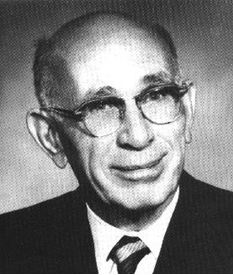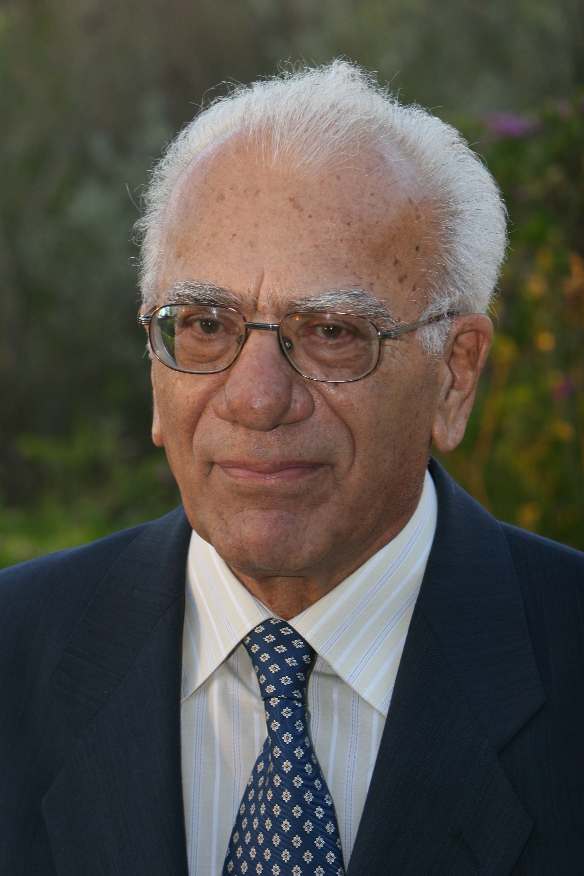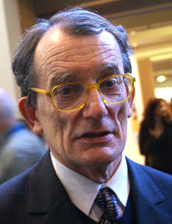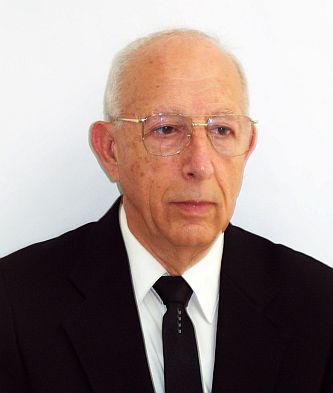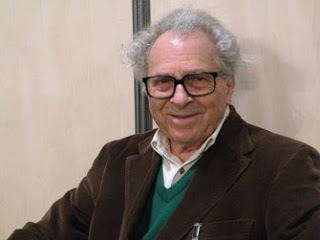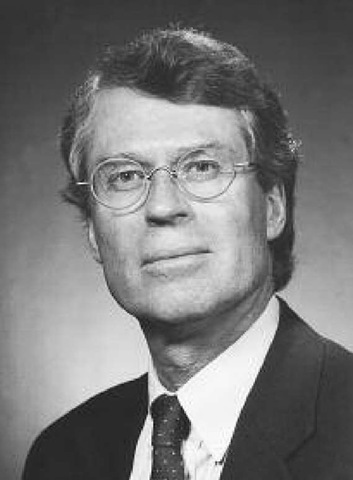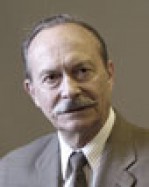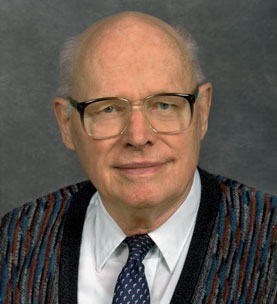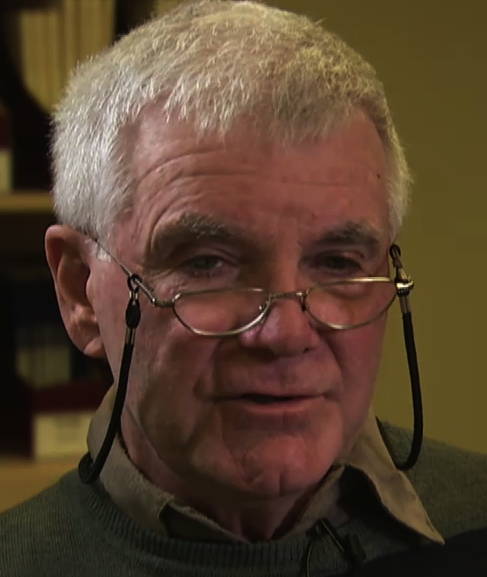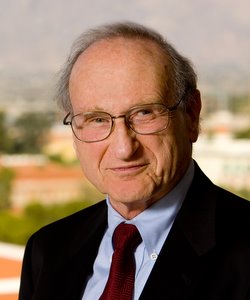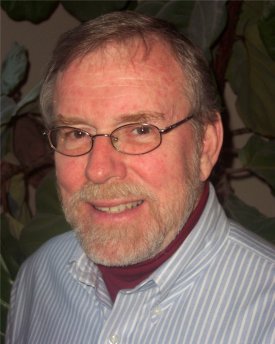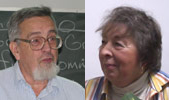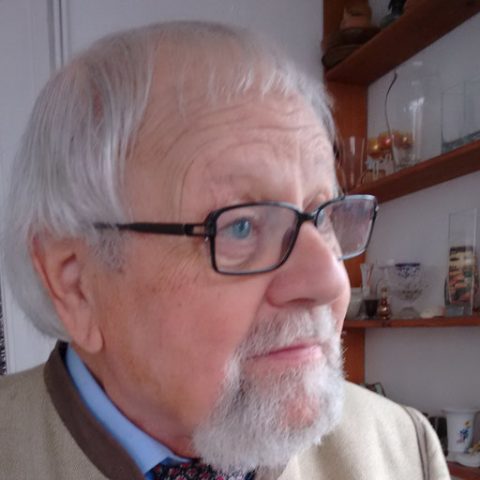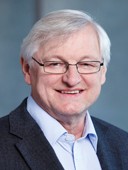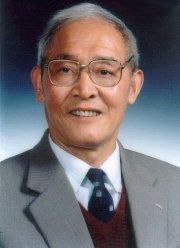Charles Vernon Theis
American Hydrogeologist
In 1935, Charles V. Theis published a brief article that was the first transient solution for groundwater flow toward a well. He did so by understanding the vital analogy between groundwater flow and heat transfer. As John Bredehoeft says: “It takes real genius to see the basic form of the underlying theory - this was Theis' contribution’’. Today, the Theis transient pump test solution is used by all hydrogeologists for well test interpretation. It is one of the many consequences of his discovery. The Theis legacy is not limited to the transient theory. He was one of the first scientists to emphasize the importance of geological heterogeneity. Further information about Theis’ life and discoveries is available in the references provided below.
Gedeon Dagan
Professor Emeritus, Faculty of Engineering, Tel Aviv University
Gedeon Dagan is Professor Emeritus at the Faculty of Engineering,Tel Aviv University, Israel. He made significant theoretical contributions to Naval Hydrodynamics and Groundwater Hydrology in his early career. Subsequently, he became one of the leading hydrologists in the world, having initiated a new field within hydrogeology, namely Stochastic Subsurface Hydrology, by coupling physical and biogeochemical processes along subsurface water pathways. His theoretical results were the first to provide a rational basis for assessing the limitations of predictive modeling and quantifying prediction uncertainty related to subsurface pollution and restoration. Gedeon Dagan has contributed fundamental advances to stochastic modeling of a broad range of natural phenomena related to subsurface hydrology. These include major contributions to the following issues: (i) Statistical characterization of aquifers and soil properties, (ii) Prediction of spreading of solutes in natural aquifers, (iii) Effective properties of subsurface systems, (iv) Travel time analysis of transport, (v) The general idea of effective spreading, where the interplay between the pollutant and the heterogeneity lengthscales play a crucial role in the transport dynamics, (vi) Nonuniform flow towards well in heterogeneous formations, (vii) Analysis of solute dilution, as opposed to spreading, as a local measure of concentration decay, (viii) Water and contaminant dynamics in highly heterogeneous porous formations.
Videos
Ghislain de Marsily
Professor, Université Pierre et Marie Curie
Ghislain de Marsily is a highly acclaimed, internationally renowned, scientist. He is Professor Emeritus at the University Pierre et Marie Curie, France. He is a pioneer in the development of stochastic hydrogeology and inverse methods. Within his scientific career, de Marsily has covered a wide range of research fields, including basin analysis, fluid mechanics, solute transport, waste disposal, river ecology, surface hydrology as well as hydrogeology, water resources management and worldwide food production. In recognition of his outstanding contributions to hydrogeology, including education through his remarkable classes as well as numerous books on hydrogeology, fluid transport and geostatistics, he has received many national and international awards. These include the O.E. Meinzer Award of the Geological Society of America, Robert E. Horton Medal of the American Geophysical Union and President’s Award of the International Association of Hydrogeologists. Amongst a very long list of other forms of recognition, de Marsily is Chevalier de la Légion d’Honneur; Member, French Academy of Sciences and Member, French Academy of Technologies.
Jacob Bear
Professor Emeritus at Technion, Israel Institute of Technology
Jacob Bear is Professor Emeritus in the Department of Civil Engineering at the Technion - Israel Institute of Technology, Haifa, Israel. He is one of the most influential scientists in the field of transport in porous media. His research has focused on many fundamental issues such as the derivation of the basic constitutive equations for flow and transport, and the development of the concept of the dispersivity tensor, and on their applications to solve practical problems, especially sea water intrusion in coastal aquifers. He is widely recognized as a pioneer in the field of groundwater hydraulics. Jacob Bear has also been an influential educator. He has taught in universities, delivered many short courses for engineers and scientists, and has written several major text books that have influenced generations of professionals all over the world.
Jean Margat
Jean Margat was born in Paris in 1924. He was a student in Earth sciences at the Paris La Sorbonne University, and then at the Nancy Engineering School of Geology (Promotion 1947). His first professional experience in hydrogeology was in Morocco from 1947 till 1961 at the Center for Hydrogeological Studies of the Geological Service. He was in charge of the Meknes-Tafilalt Region, first as an engineer then as a deputy head.
He then joined the French Geological Survey (BRGM). He there lead and animated, at the direction of the Hydrogeology Department, created in 1964, studies and research on groundwater in France and many countries, particularly in the arid zone. Later, he specialized in national accounts of water, water economy, foresight, particularly in the Mediterranean basin (Blue Plan), and global syntheses on resources and needs and the issues about water.
Expert for several international organizations (UNDP, UNESCO, FAO, OECD, CEC, World Bank, CEFIGRE, the Sahara and the Sahel Observatory), he dedicated himself also to training and popularization.
We owe him several books and numerous publications dealing with evaluation and management of water resources, mapping, terminology, and water economy, especially in the Mediterranean basin.
He was the Vice President of the Blue Plan for the Mediterranean from 1998 to 2010 and is the vice president of the Mediterranean Institute of water since 2000.
"Honorary Membership" from the IAH in 1999, he received in 2008 the international hydrological prize awarded by UNESCO, the WMO and the International Association of Hydrological Sciences.
John Cherry
John Cherry was born on July 4, 1941, in Regina, Saskatchewan, Canada. His family moved several times in his youth and he attended high schools in Ottawa and Regina, Canada. He attended the University of Saskatchewan in Saskatoon and earned a bachelor of science degree in geological engineering in 1962. He began his graduate studies at the University of California at Berkeley and earned a master of science degree in geology in 1964. He finished his graduate studies at the University of Illinois at Urbana-Cham-paign, receiving a Ph.D. in 1966. Upon graduation, Cherry became a postdoctoral fellow at the University of Bordeaux, France, but returned to Winnipeg the next year (1967) to join the faculty at the University of Manitoba, Canada. In 1971, he moved to the University of Waterloo in Ontario, and he remains there today. He was the director of the Institute for Groundwater Research from 1982-1987 but switched to the director of the University Consortium for Solvents-in-Groundwater Research in 1988. He also holds an NSERC (Environmental Research Council) chair in contaminant hydrogeology.
József Tóth
The best way to explain why József Tóth changed the way that hydrogeologists see groundwater flow systems is to cite how he was introduced in January 2004, when he received the M. King Hubbert Award in Orlando: "When it comes to predicting the movement and location of groundwater, few in the world have made as big a splash as Dr. József Tóth. […] Tóth's biggest breakthrough is a mathematical formula used to explain how groundwater moves under the influence of gravity. It is used to predict the location of drinking water, the migration of hydrocarbons, the generation of various ore deposits, and to understand the distribution of vegetation and the origin of soil salinity." His work has been recognised in numerous ways. Amongst other awards, Toth won the first O.E. Meinzer Award from the Geological Society of America's Hydrogeology Division for his earliest publications and in recognition of distinguished contributions to hydrogeology.
Paul Witherspoon
Paul Witherspoon began his career as a petroleum engineer where he is best known for his work on the assessment of caprock integrity for underground storage of natural gas. It was only after joining the faculty of the University of California at Berkeley at the age of 38 that he began to address hydrogeological issues. He was the leader in turning hydrogeological attention away from a singular concern with aquifer assessment toward a greater consideration of the importance of aquitards. The aquitard-evaluation methodologies he and his students developed at Berkeley, and later at the Lawrence Berkeley Laboratory, turned out to be invaluable in the assessment of contaminant transport problems and nuclear waste isolation. He and his LBL team are also widely recognized for their pioneering work on flow in fractured rocks, geothermal energy resources, and numerical simulation methods. Paul has always been a strong advocate of large-scale underground testing, and the importance of the in-situ research carried out at the Stripa Mine in Sweden under his influence attests to the validity of his vision.
R. Allan Freeze
Former Professor and Director of the Geological Engineering Program, University of British Columbia, Vancouver
R. Allan Freeze is a leader and mentor in hydrogeology. With John Cherry, he co-authored the widely referenced text book “Groundwater” in 1979. He has taught, advised and inspired generations of students and researchers. His scientific contributions are extremely diverse (e.g. groundwater systems, stochastic analysis of subsurface flow, streamflow generation, waste disposal and management, land subsidence, hydrogeological decision analysis, risk assessment and data worth, history of science).
His services to the profession have been recognised by numerous awards including the Meinzer Award (1974) and Distinguished Service Award (2004) from GSA, the Horton Award (1971) and the Macelwane Medal (1973) from AGU, the M. King Hubbert Award (1996) from NGWA, the C. V. Theis Award (1992) from AIH and an honorary Doctor of Science degree from the University of Waterloo.
Shlomo P. Neuman
Regents Professor of Hydrology and Water Resources, University of Arizona, Tucson
Shlomo Peter Neuman is Regents professor of Hydrology and Water Resources at the University of Arizona in Tucson, and he is clearly one of the scientists who changed the face of hydrogeology during the 20th century. Starting with his early work on well hydraulics, he has been continuously exploring new challenges and developed theoretical and numerical tools that provided practical answers to a broad range of problems including aquifer characterization, inverse modeling, fractured media, stochastic method, or multiscale analysis. His influence on the profession can be directly measured today by the high number of his former students or collaborators who are now leading some of the most active hydrogeological research groups in the world.
Warren W. Wood
Professor, Department of Geological Sciences, Michigan State University
Professor Warren W. Wood is a highly distinguished scholar renowned for his contributions to hydrogeology. He is currently Visiting Professor of Geosciences at Michigan State University, USA where he has been since 2003. Warren is also an Adjunct Professor at King Fahd University of Petroleum and Minerals Saudi Arabia; Christiansen Fellow, St. Catherine's College, Oxford University, UK; and Scientist Emeritus with the U. S. Geological Survey. Warren was a Research Hydrologist for the U. S Geological Survey in Reston, Virginia from 1980 to 2003. His professional activities have included Chair of the Hydrogeology Division of GSA, service on the Board of Directors of both the National Ground Water Association and American Ground Trust and several program chairs for AGU. Warren was the GSA’s Distinguished Birdsall (later named Birdsall-Dreiss) National Lecturer, been an invited lecture at over 100 universities in 16 countries, and has served as Editor-in-Chief of the journal Groundwater, and Associate Editor of Water Resources Research, Hydrogeology Journal, Geotimes, and Hydrogeology and Engineering Geology of the China Geological Survey. Warren has received numerous recognitions for his work including the Meritorious Service Award from the U. S. Department of Interior, the M. King Hubbert Medal from the National Ground Water Association and he is a Fellow of the Geological Society of America. Warren has published over 100 refereed journal articles and for the last 30 years his research interests have been in the hydrogeology of arid or semi-arid areas. He has particular interests in variable density groundwater phenomena, and their application to salt lake systems.
William B. and Elizabeth L. White
Hydrogeologists and speleologists all over the world recognise William B. White (Born 1934, USA) and Elizabeth L. White (Born 1936, USA) for their achievements in the fields of karst hydrogeology and cave research. It is also thanks to the Whites that many aspects of the specific hydrogeological characteristics of carbonate aquifers, such as turbulent flow in caves and conduits, are generally acknowledged today.
Wolfgang Dreybrodt
Emeritus Professor of experimental physics, University of Bremen, Germany
Wolfgang Dreybrodt is Emeritus Professor of experimental physics at the University of Bremen, Germany. With research career in solid state physics, biophysics using spectroscopic methods, he entered karst research in early 80s, inspired by the beauty of caves and karst landscape that he encountered as a caver. He contributed fundamental work on dissolution and precipitation kinetics of calcite, growth of stalagmites and the evolution of karst conduits. He was among the first to use reactive transport models to simulate the growth of karst conduits to understand the long-term evolution of karstic systems. His book Processes in Karst Systems published in 1988 laid the foundations of quantitative approach to understand karst and its aquifers. With his students and co-workers he has developed numerous models of karst aquifer evolution in various settings, which culminated in a book Processes of Speleogenesis: A modelling Approach, published in 2005. Thereafter he has worked on the evolution of flank margin caves and the speleogenesis of hypogene caves. During the last decade, he has contributed a series of theoretical and experimental papers on isotopic fractionation of 13C and 18O in stalagmites. He has been elected as a corresponding member of the Slovene Academy of Sciences and Arts since 2021.
Videos
Wolfgang Kinzelbach
ETH Zurich
Wolfgang Kinzelbach is Professor Emeritus of Hydromechanics at ETH Zurich, where he served from 1996 until his retirement in 2014. Originally trained in physics in Mainz and Munich, he shifted to environmental engineering during a study period at Stanford University. He earned his doctorate from the University of Karlsruhe and completed his habilitation at the University of Stuttgart, holding prior academic positions at the universities of Kassel and Heidelberg.
Kinzelbach’s research focuses on flow and transport processes in the environment, particularly in groundwater systems. He has published extensively and received numerous honors, including the Henry Darcy Medal, the Prince Sultan International Prize for Water, and the Muelheim Water Award. His work has had a significant impact on water resource management and environmental protection.
After retiring, he led the Sino-Swiss groundwater project addressing over-extraction in arid regions of China, and he served as ETH Zurich’s confidant for research integrity. His contributions continue to influence both science and policy in hydrology and environmental engineering.
Videos
Yuan Daoxian
Institute of Karst Geology, Guilin, Guangxi, China
Yuan Daoxian is arguably the most experienced karst and hydrogeology researcher in China. With his teams in Guilin and Chongqing, he contributes to the investigation and resolution of the huge environmental problems in the karst regions of Southwest China, which are home to more than 100 million people. Soil erosion, rock desertification, groundwater contamination and local or temporal water shortages are key problems to be addressed. In this interview, Yuan Daoxian tells about his life and research, which is closely related to the younger history of China and the present environmental problems in this emerging economic power.

